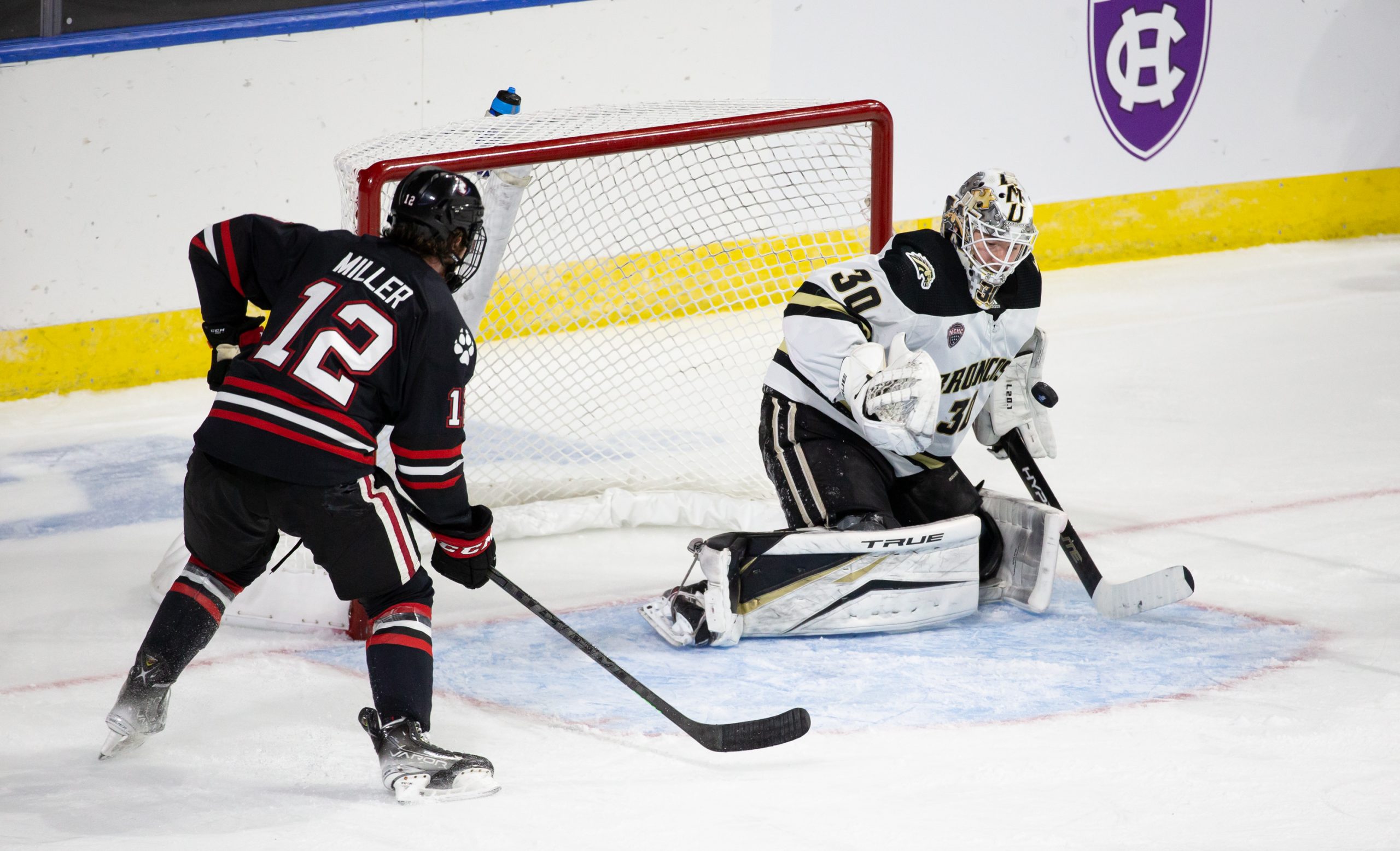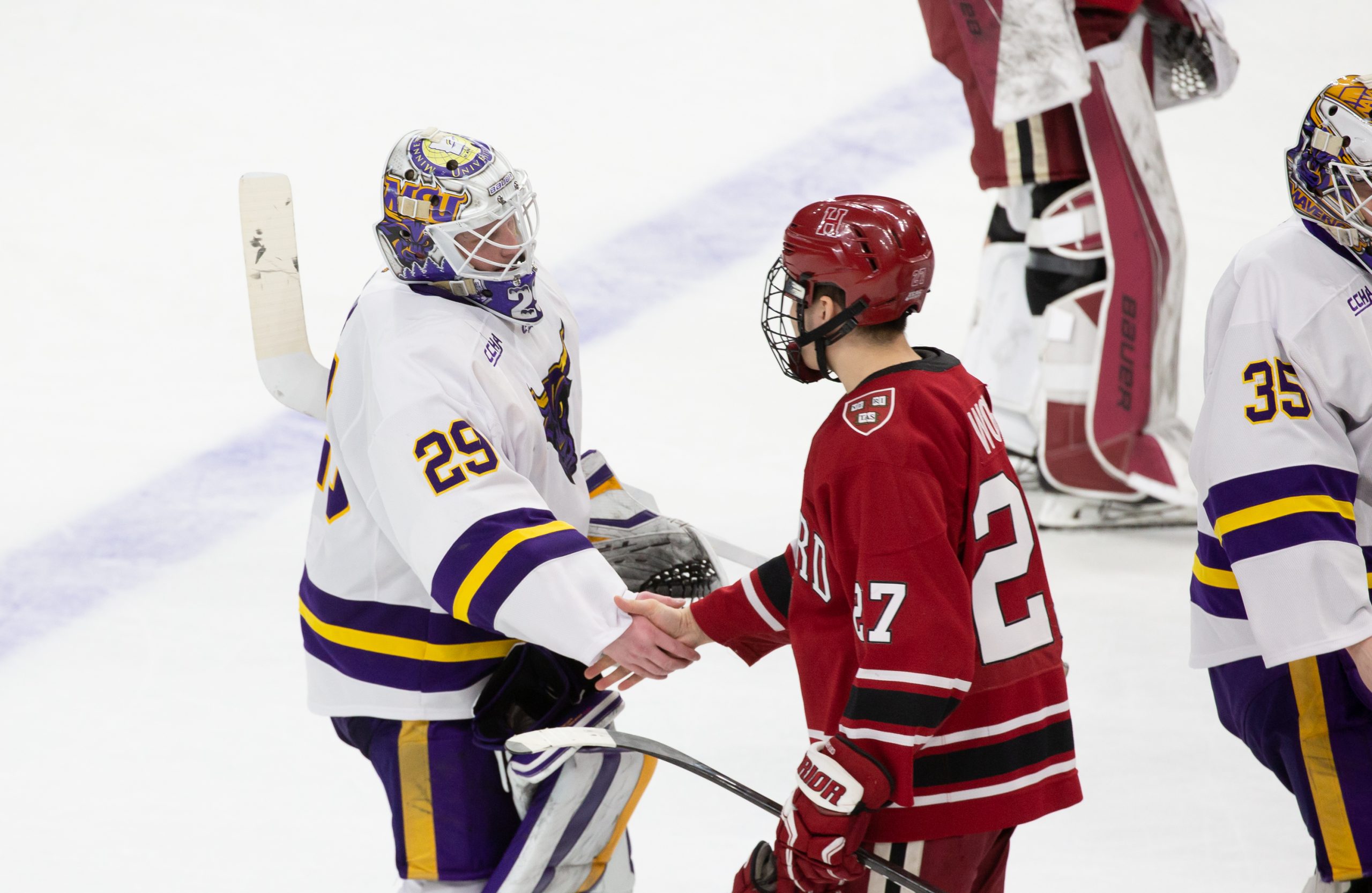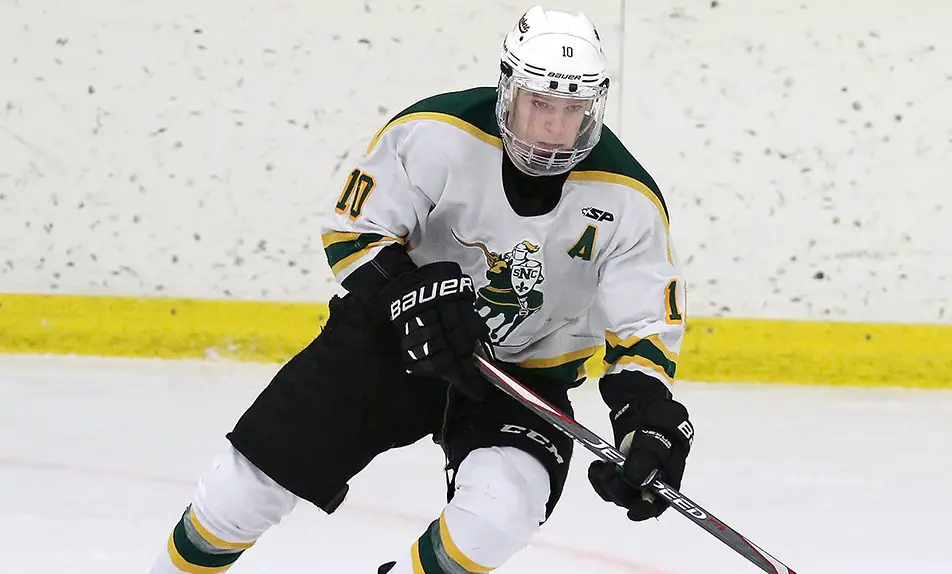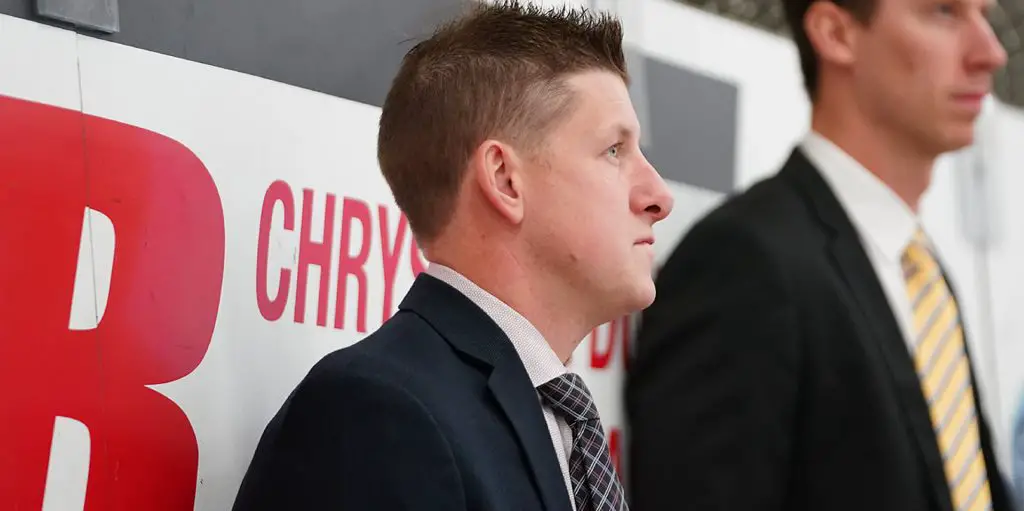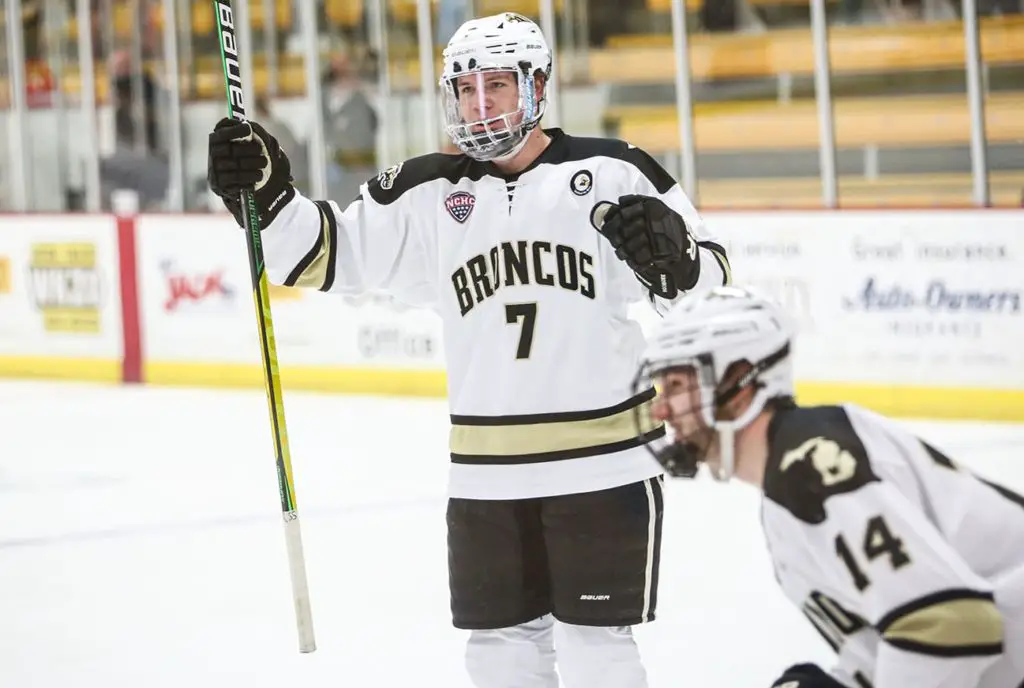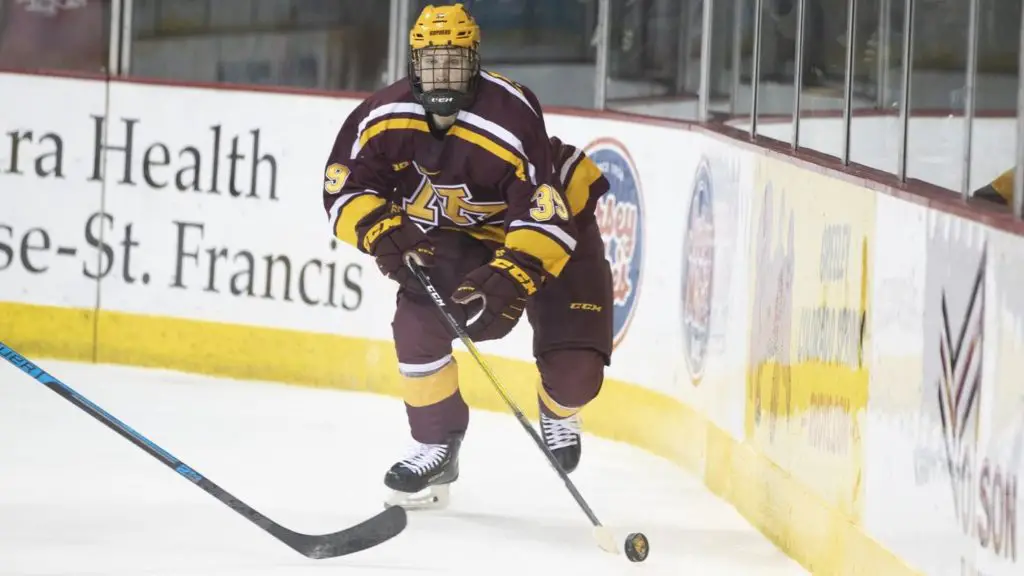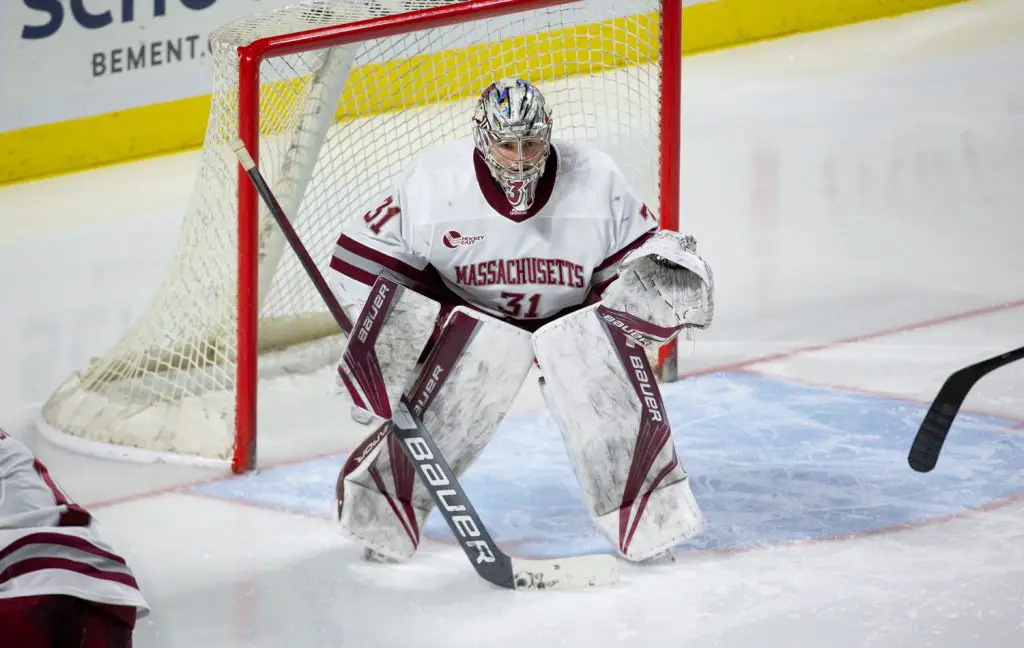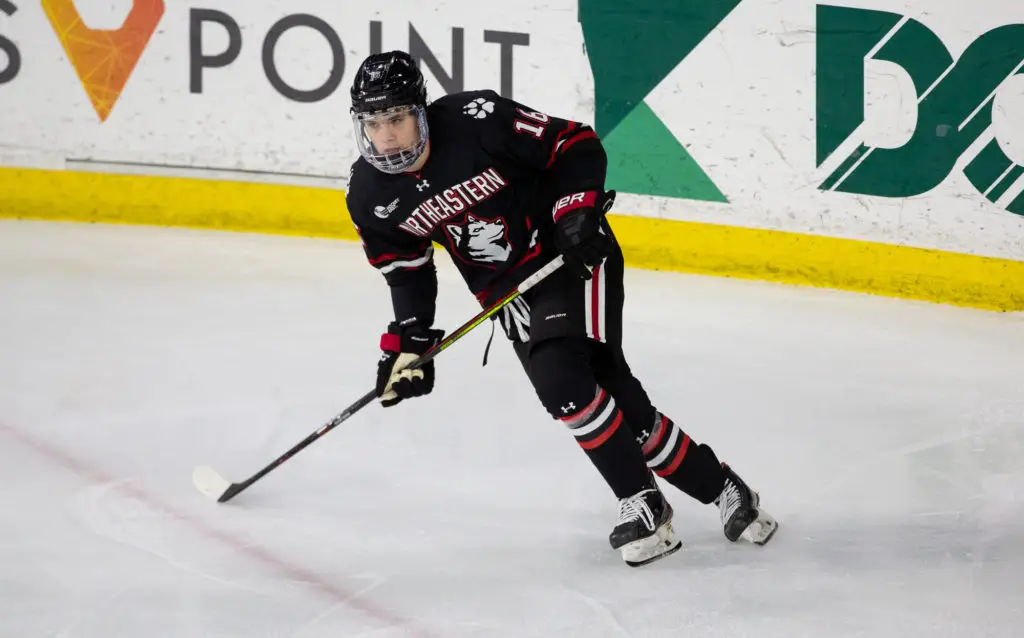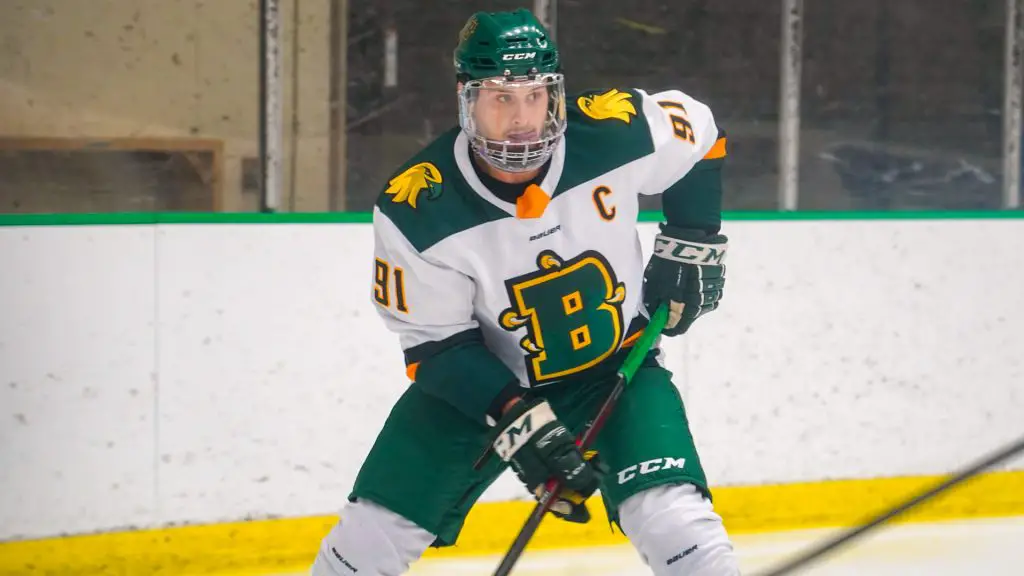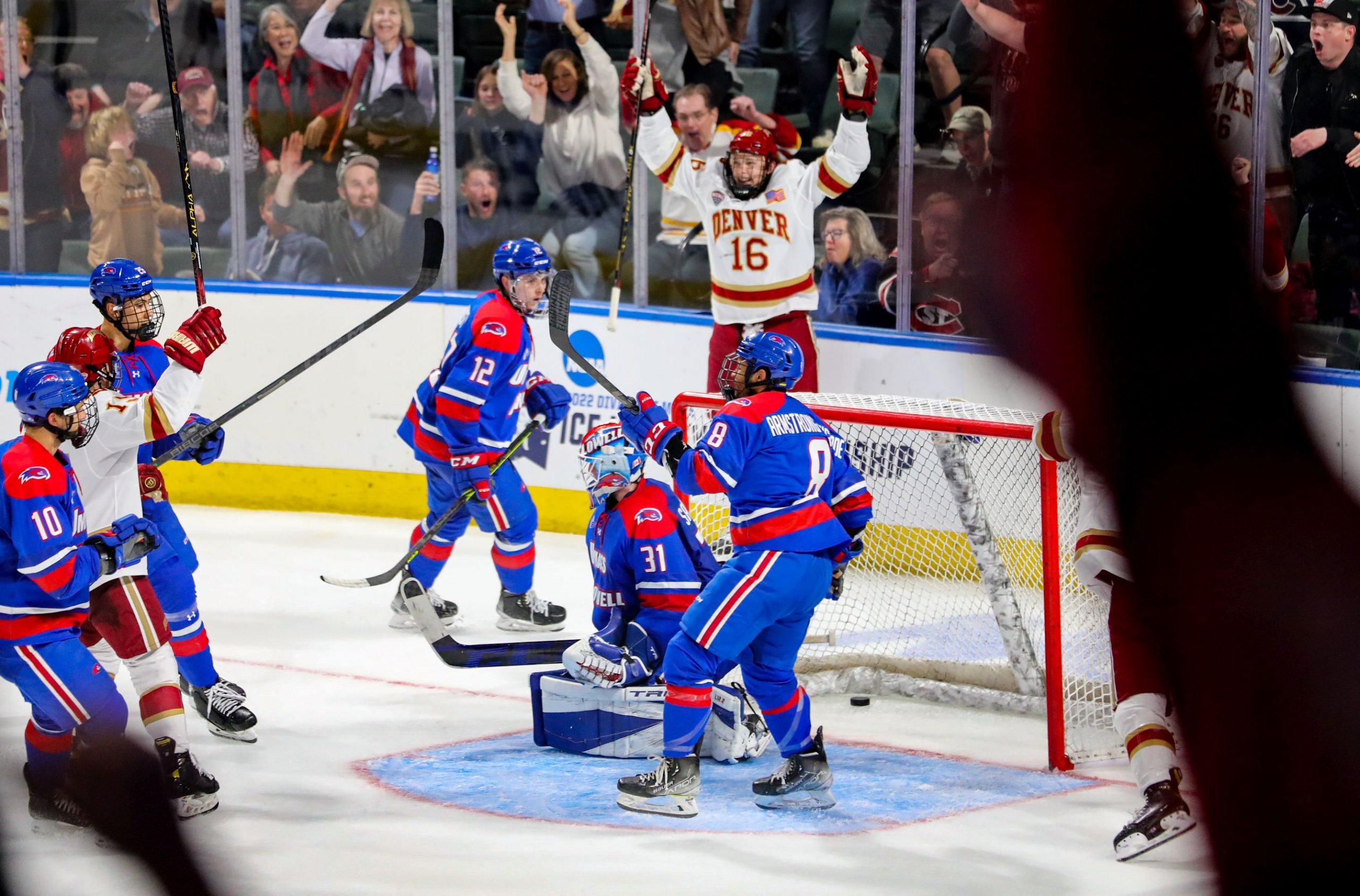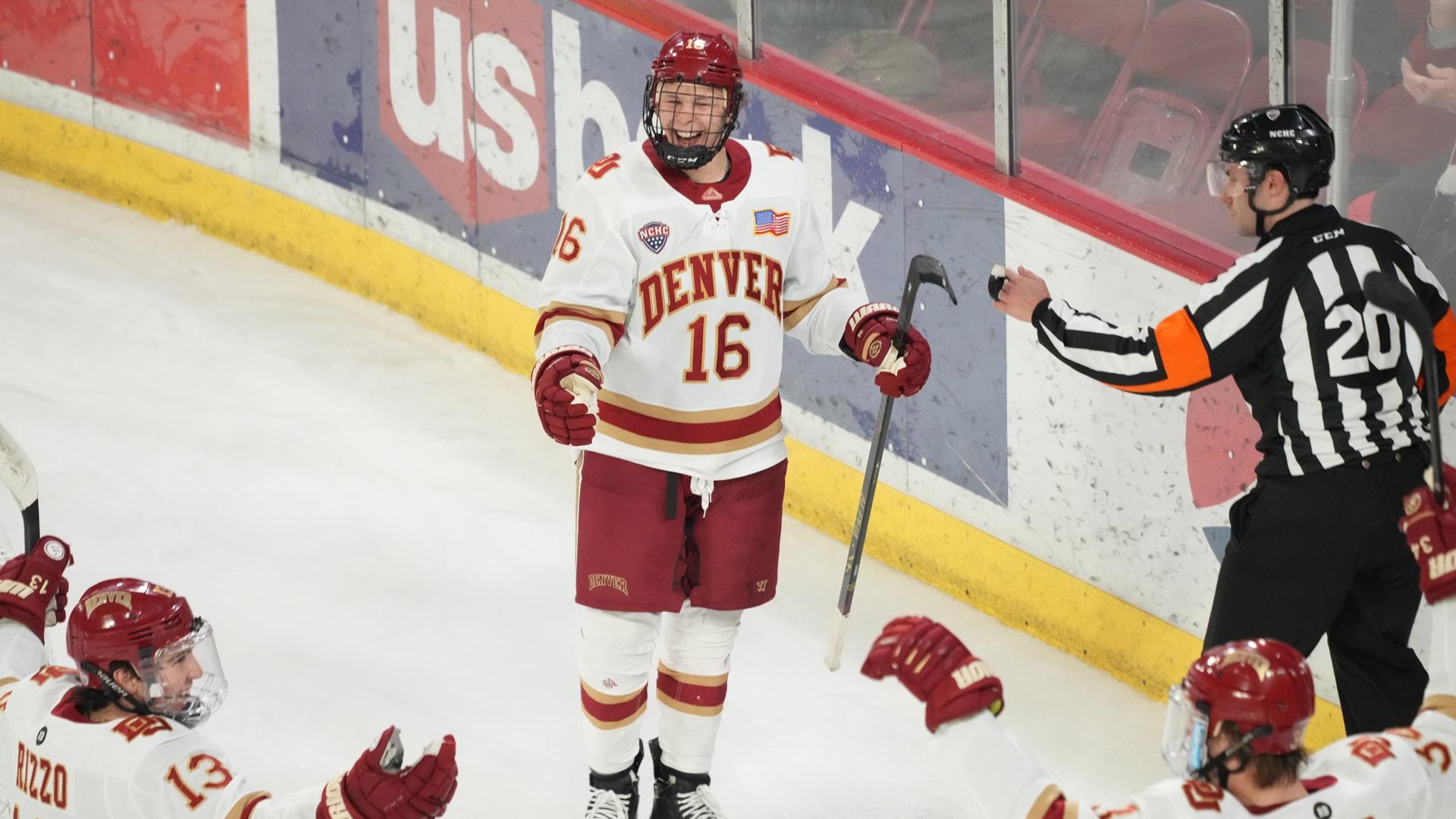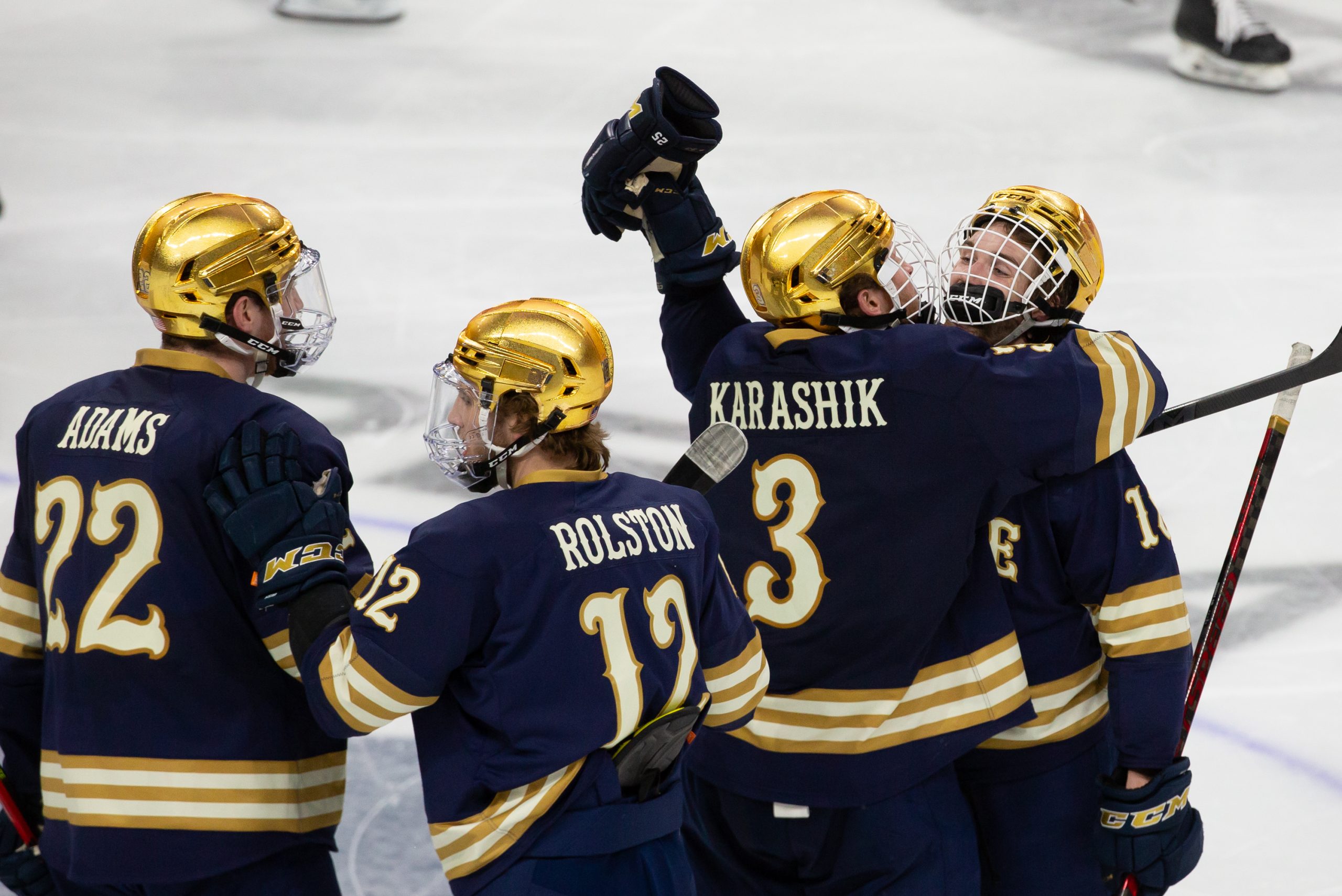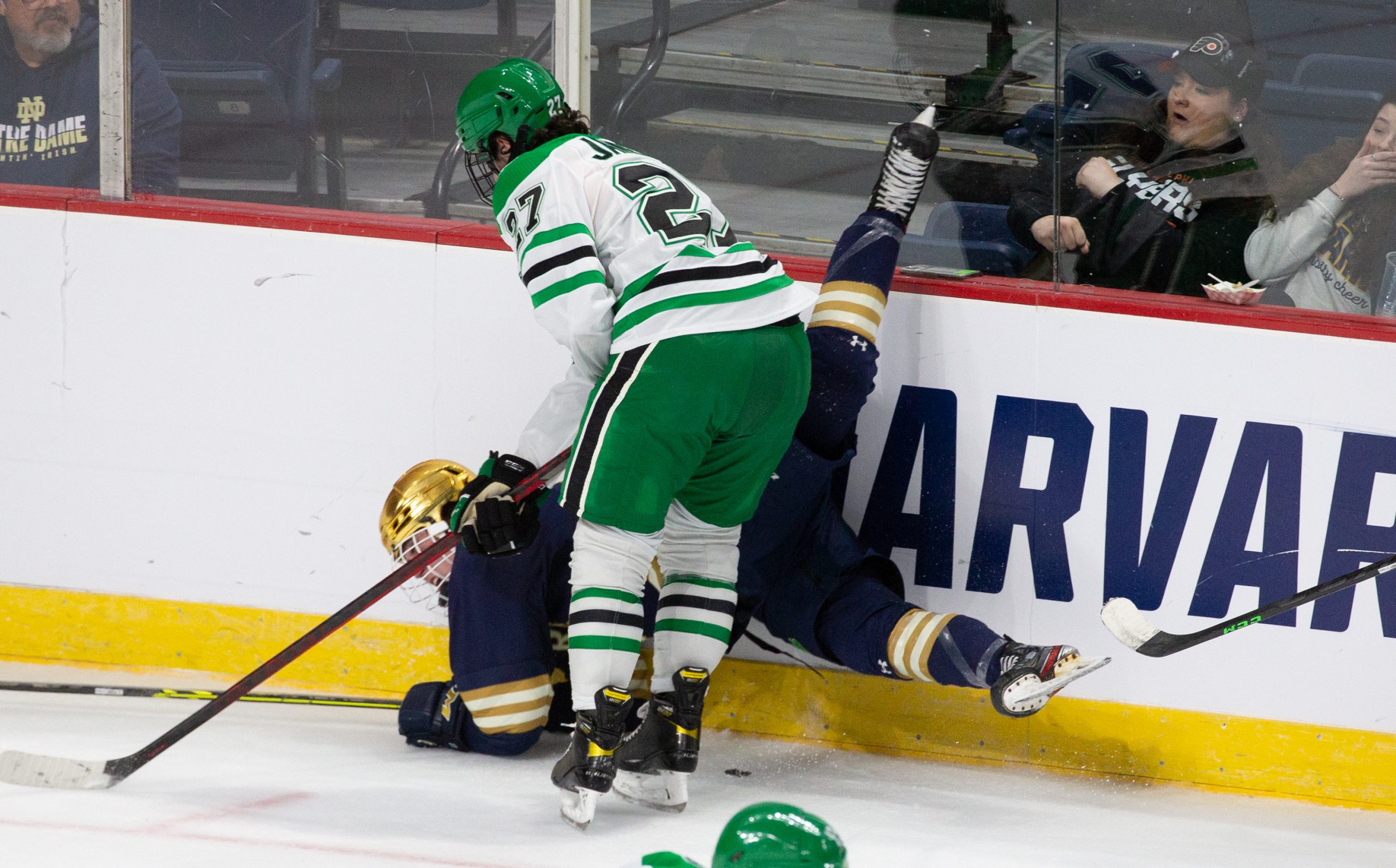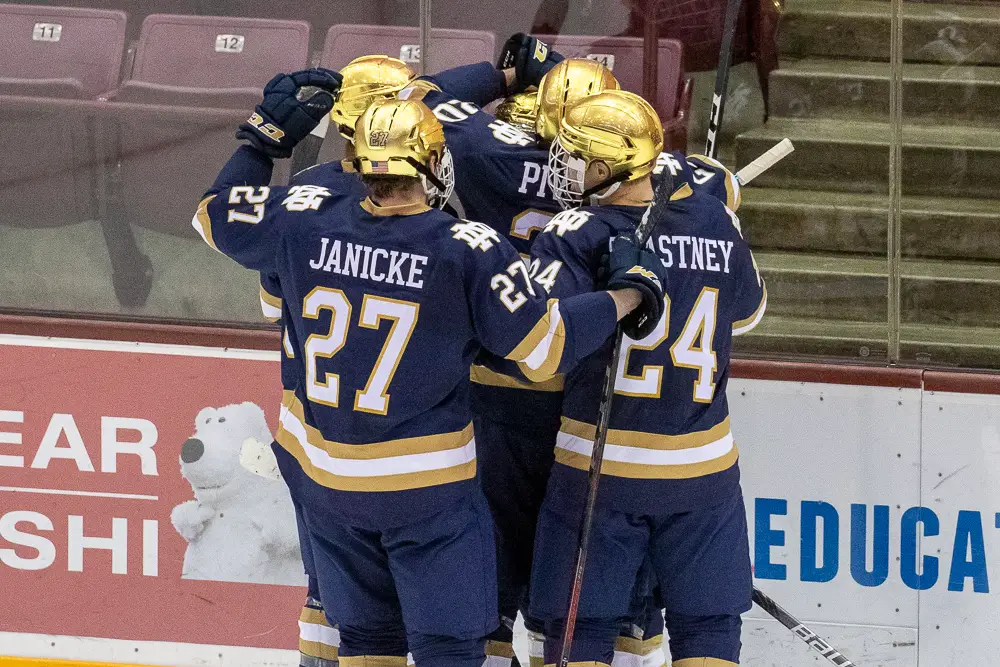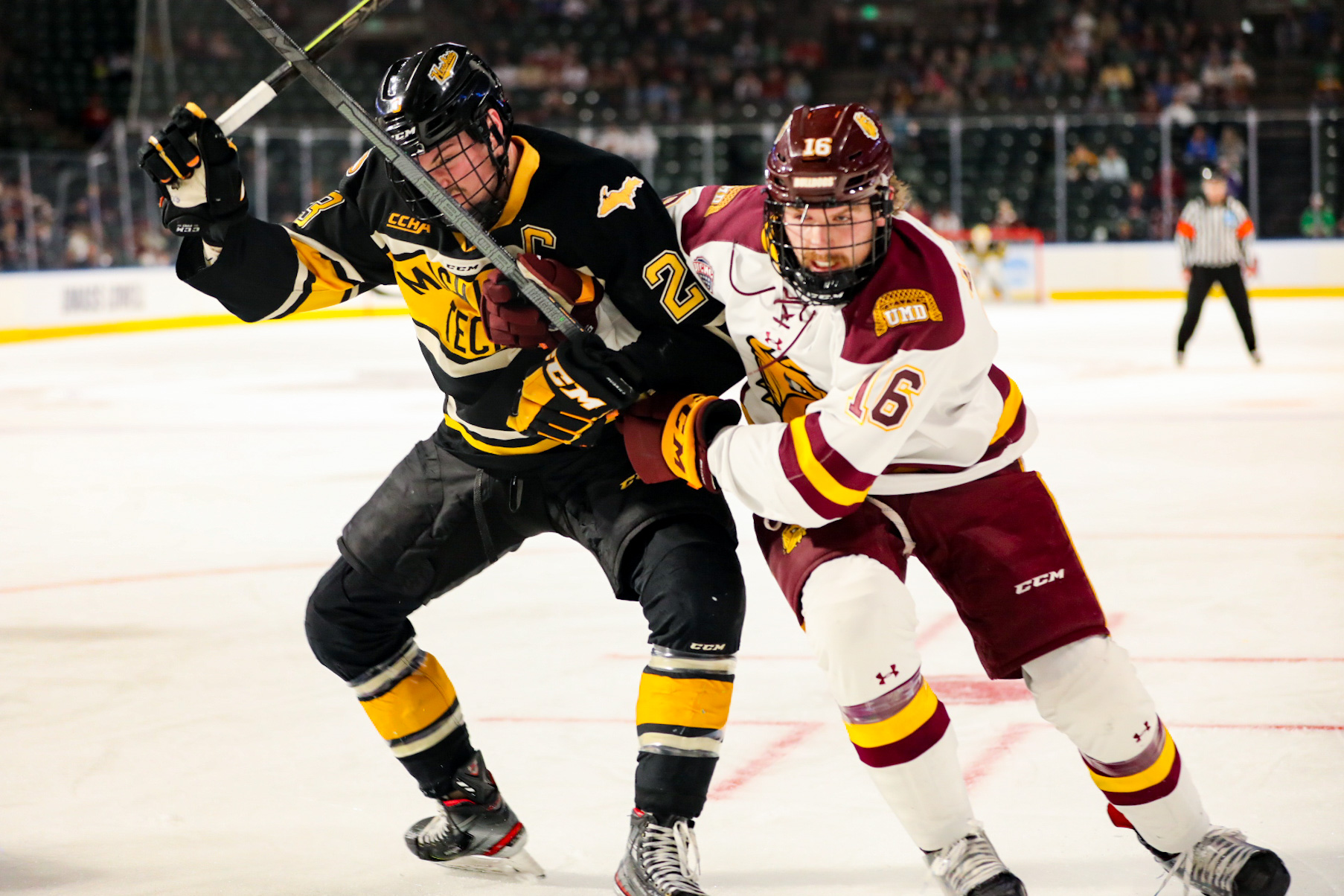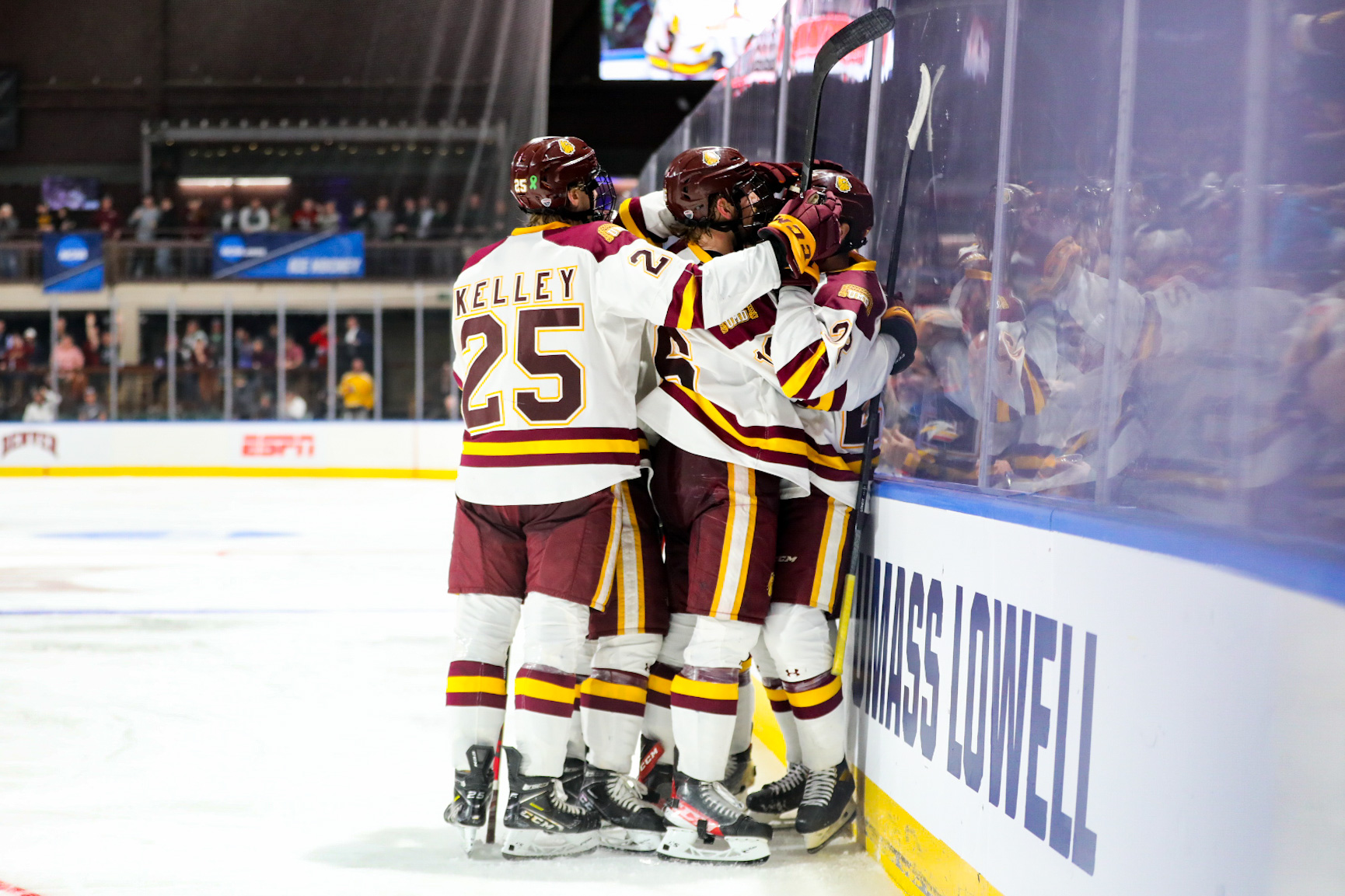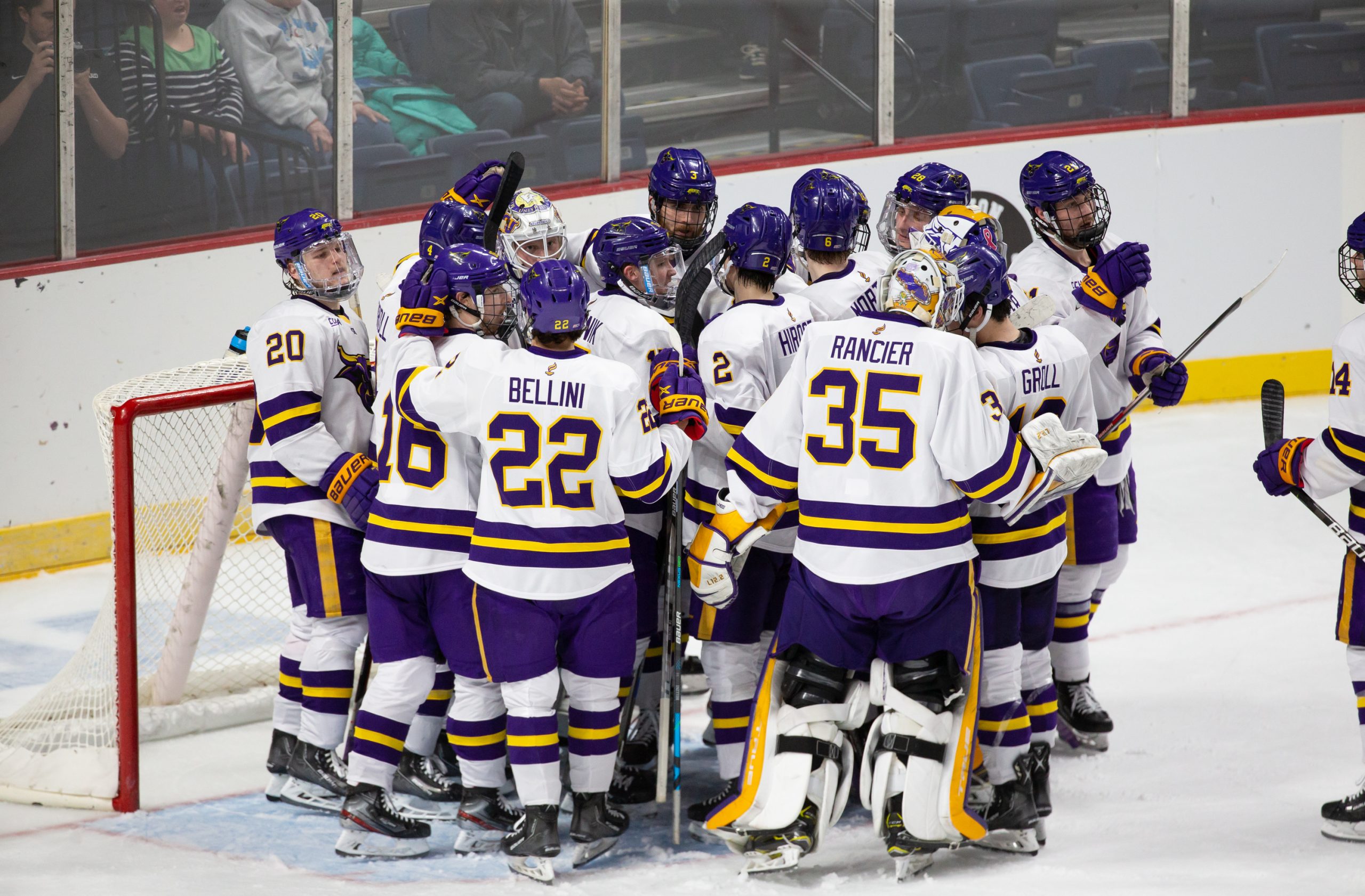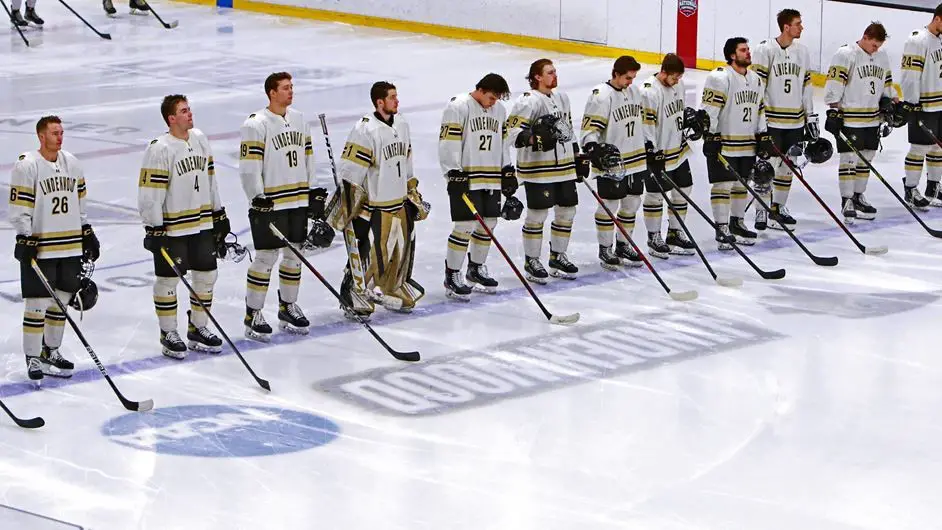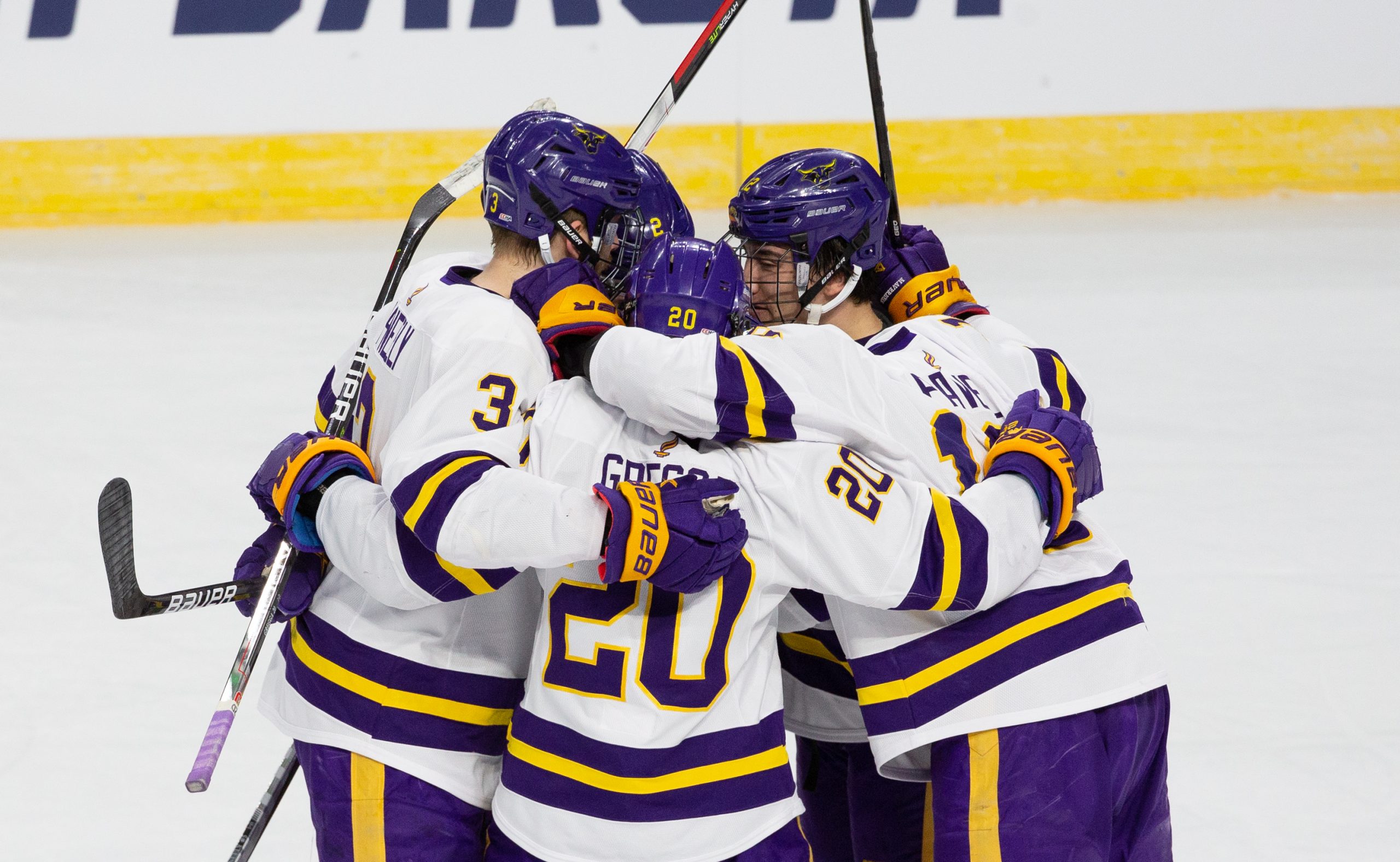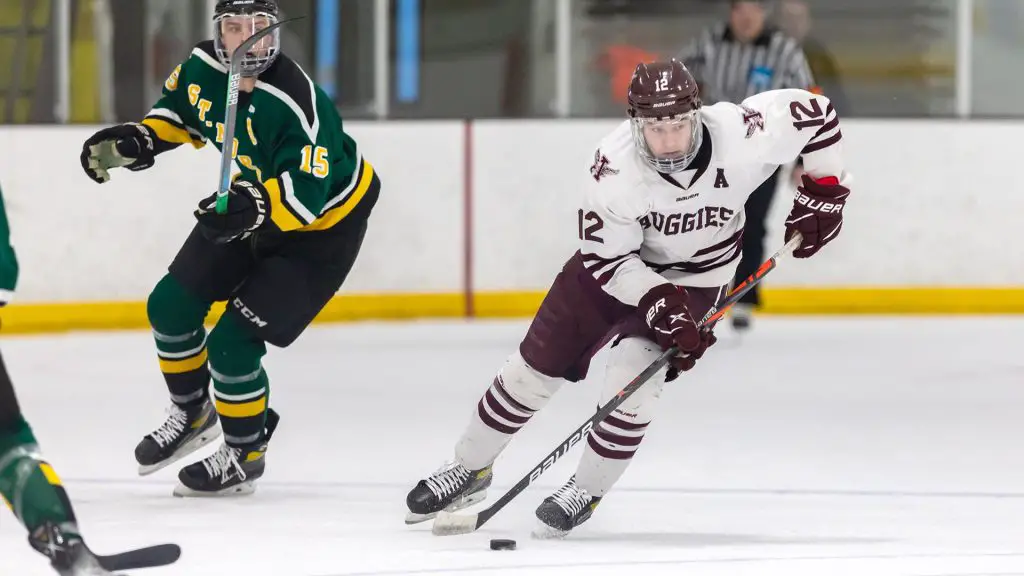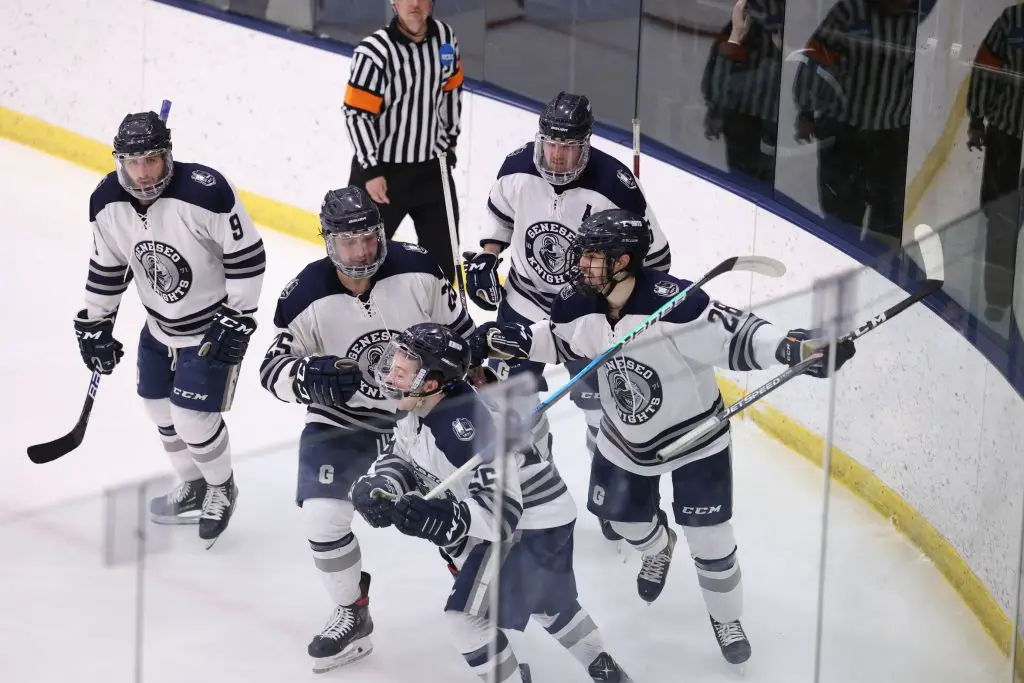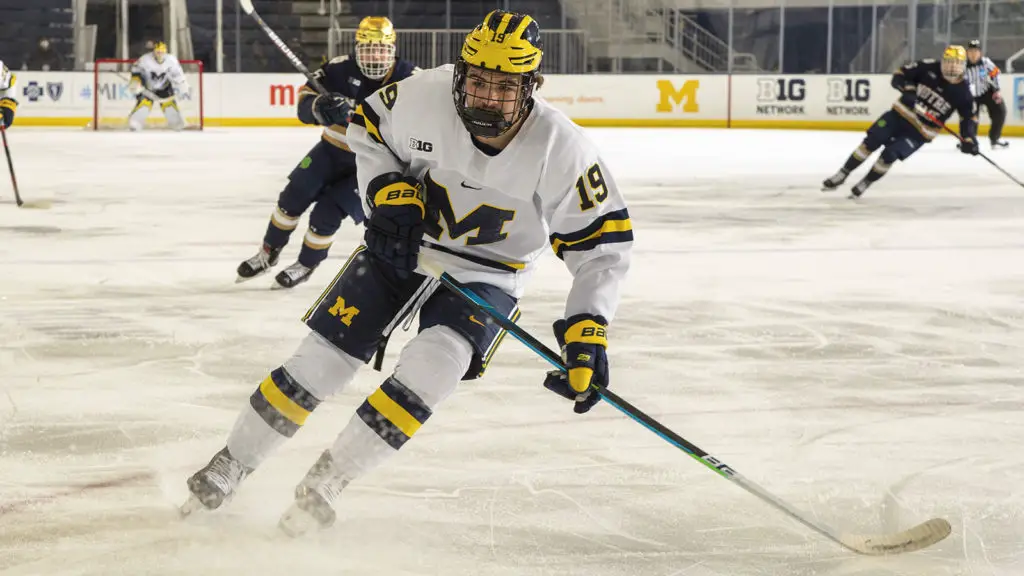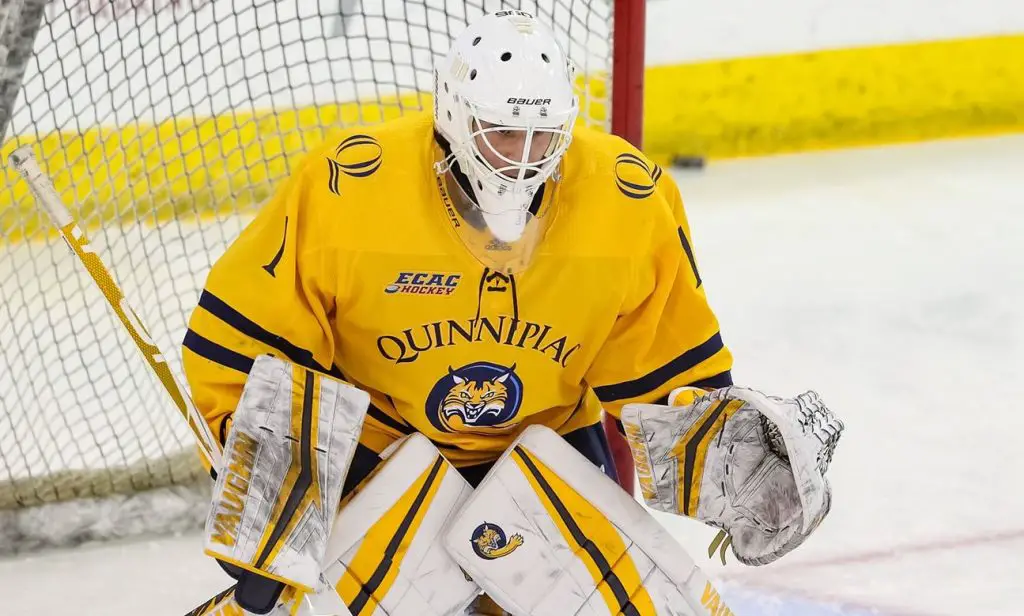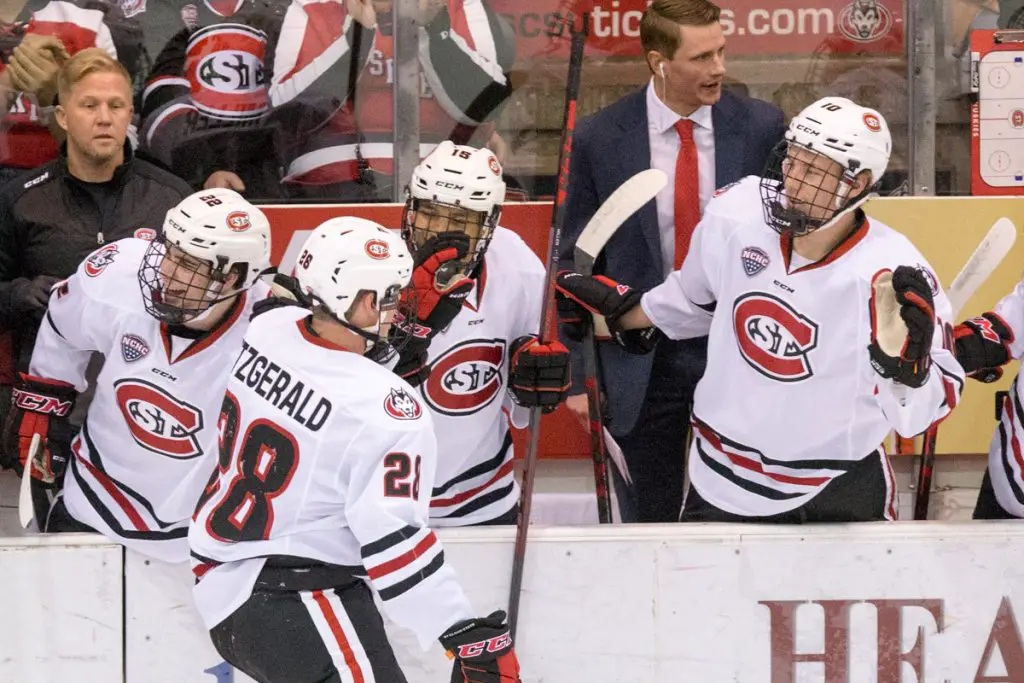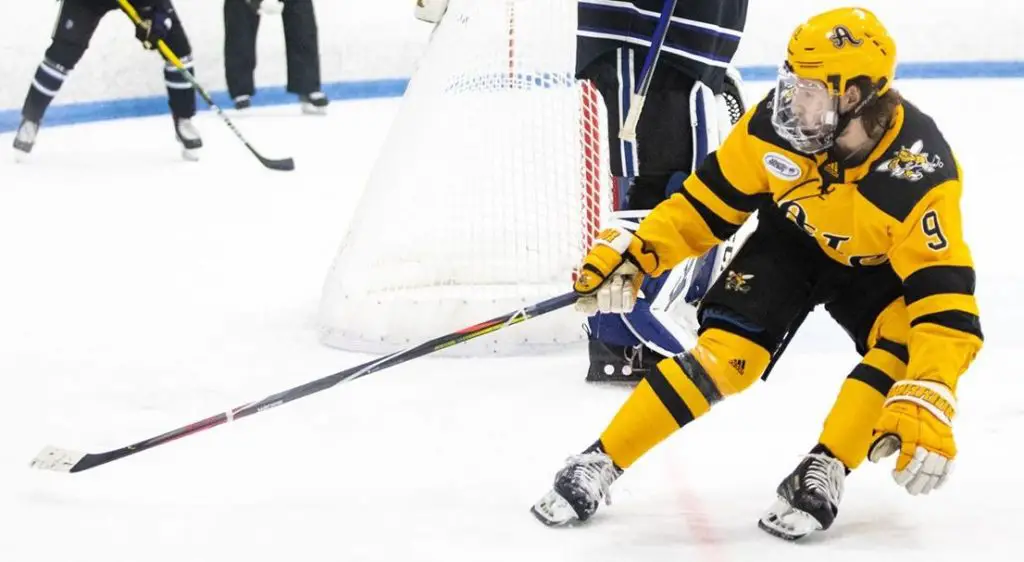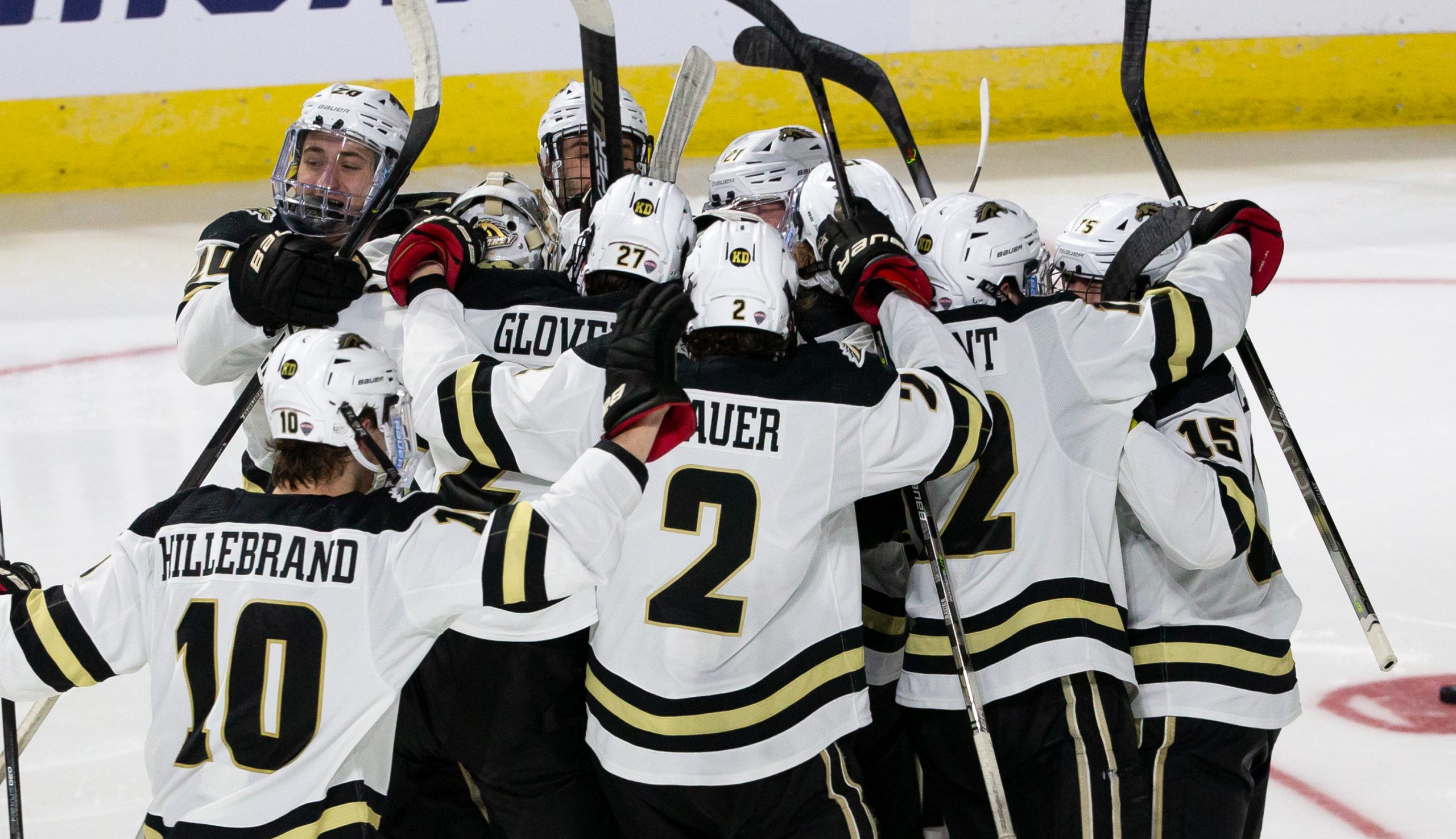
WORCESTER, Mass. — At first, Luke Grainger didn’t know how to react.
After intercepting the puck behind the net, the Western Michigan sophomore looked to have had an overtime game-winning goal on a wraparound shot taken away after a highlight-reel save by Northeastern goalie Devon Levi.
“I thought Levi made a great save (at first). He makes a lot of great saves, so I was hoping for the best,” Grainger said. “… I really wasn’t sure what I was feeling. I was just hoping it crossed the line.”
Grainger’s hope worked. Following a short video review, it was confirmed that the puck crossed the goal line to give his top-seeded Broncos a 2-1 win over Hockey East regular-season champion Northeastern in Friday’s opening game of the NCAA Worcester Regional.
Grainger’s eighth goal and fourth game-winner of the season followed senior teammate Cole Gallant’s opening tally 5:59 into the first period.
Northeastern forced the extra period after top-scoring junior Aidan McDonough’s 25th goal of the season evened the score with 3:20 to play in regulation.
“(It was) a great battle tonight,” first-year Western coach Pat Ferschweiler said. “I thought that was exactly what NCAA hockey should look like.”
In the end, though, Western (26-11-1) earned its first NCAA win, breaking a seven-game losing streak in previous tournament appearances.
The overhead view of the WMU OT winner pic.twitter.com/j21DElt1TH
— CJ Fogler AKA Perc70 #BlackLivesMatter (@cjzero) March 25, 2022
The milestone was not lost on Ferschweiler, as players like fifth-year senior Ethen Frank and drafted junior defenseman Ronnie Attard returned to the program to be a part of such a postseason run.
“This team is really close,” said Ferschweiler, whose team is 6-1 in March. “… They probably had some unfinished business from last year, they came back and they’ve been on a mission of accomplishment and supporting each other. I think that leads to belief on the ice and our success.”
The Broncos opened the scoring in opportunistic fashion just before the opening period’s six-minute mark as Gallant capitalized on a neutral zone turnover and sent a snipe from the right side over Levi’s shoulder.
“I kind of just got the puck, picked my head up, saw a little bit of net there and threw it to the net,” Gallant said. “I scored like that against Denver, and I’ve been working on shots from the outside in practice so it kind of worked out.”
But Western left other chances on the table to extend its first-period lead. Levi made a blocker stop to deny Frank at the back end of a 2-on-1 rush, one of his 34 on the night.
“We’re not in this game without him,” McDonough said of Levi. “He’s an unbelievable goaltender and an unbelievable person. That (game-winner) is a bounce, that’s hockey. There were hundreds of goals that went in this year that he stopped. … He’s been our backbone all year.”
Western junior Brandon Bussi matched the Mike Richter Award finalist and Hockey East Rookie of the Year with each stop for nearly all of regulation. He made 30 saves, including 15 in the third period and overtime.
The score remained 1-0 until the waning minutes of the third.
McDonough finally leveled the score with 3:20 left in regulation, cutting down the right wing and toward the goal before sneaking the puck through a sprawling Bussi.
“Sam Colangelo made a nice play, drew the guy to him and hit me in the middle,” McDonough said. “I got a few shots blocked kind of in the same spot, so I just tried to pump, the kid fell and I kind of went around him. I whacked at it a few times, and luckily it went in.”
After his team recorded just five shots in the opening period, Northeastern coach Jerry Keefe was happy with the response and the battle showed during what turned out to be the final game of a historic season. The Huskies finished 25-13-1.
“I’m really proud of our team today. I thought we laid it all on the line,” Keefe said. “They played hard for each other today. When you get to overtime it’s one bounce either way. … (Western Michigan) got the bounce in overtime, but that doesn’t take away anything that our group did today. I thought we battled and kept getting better as the game went on.”
